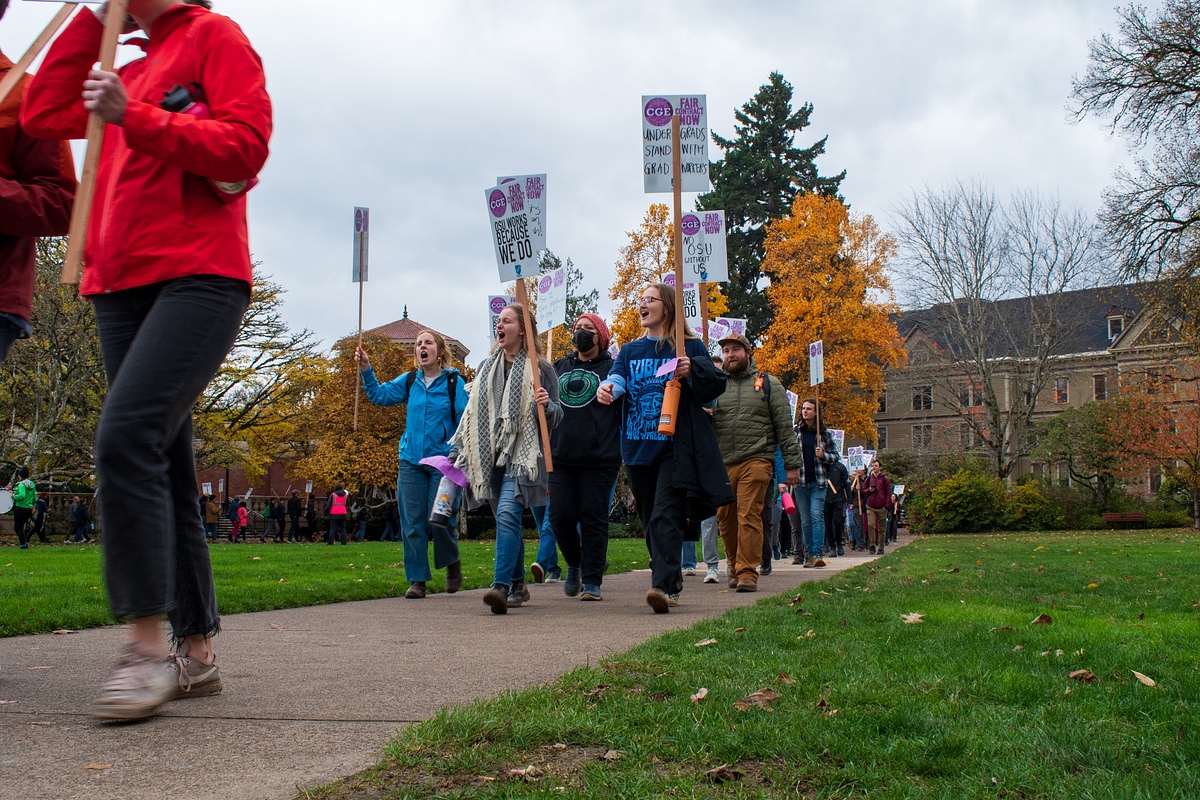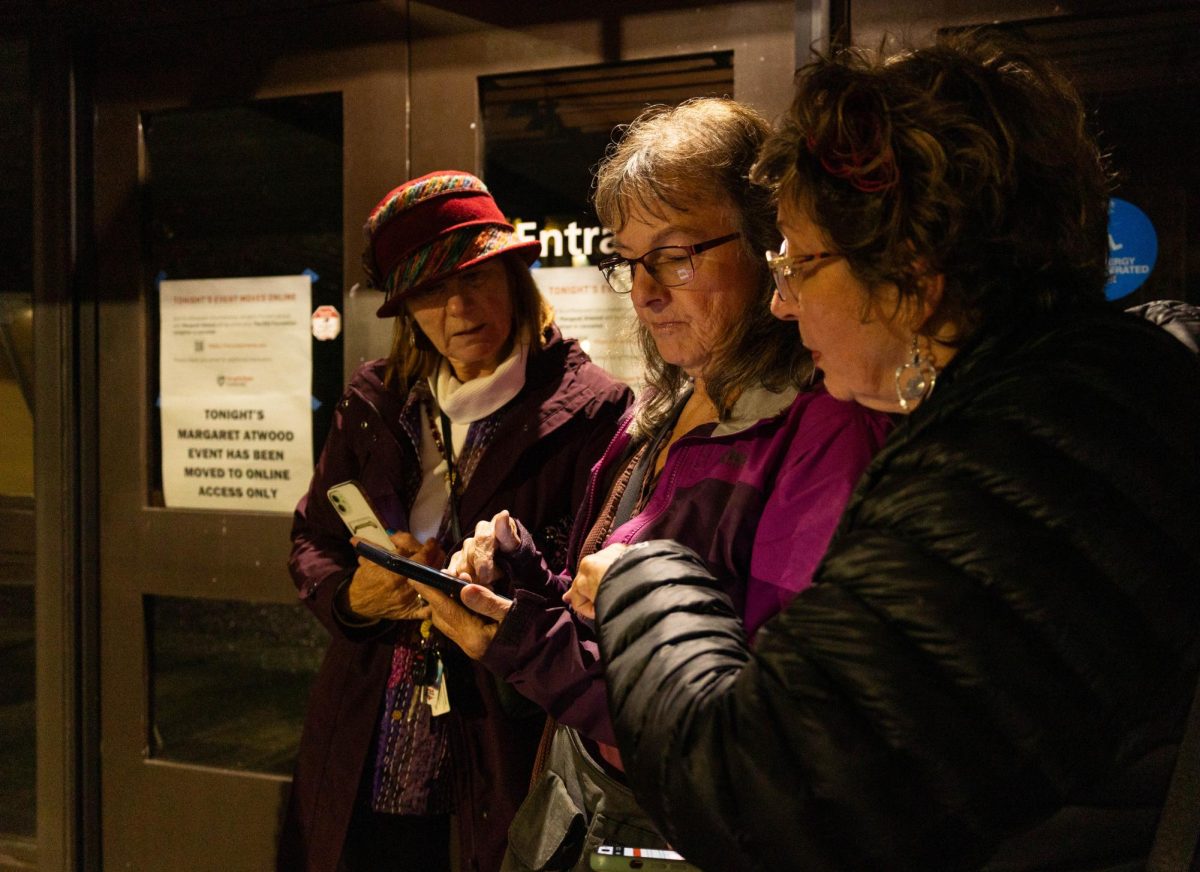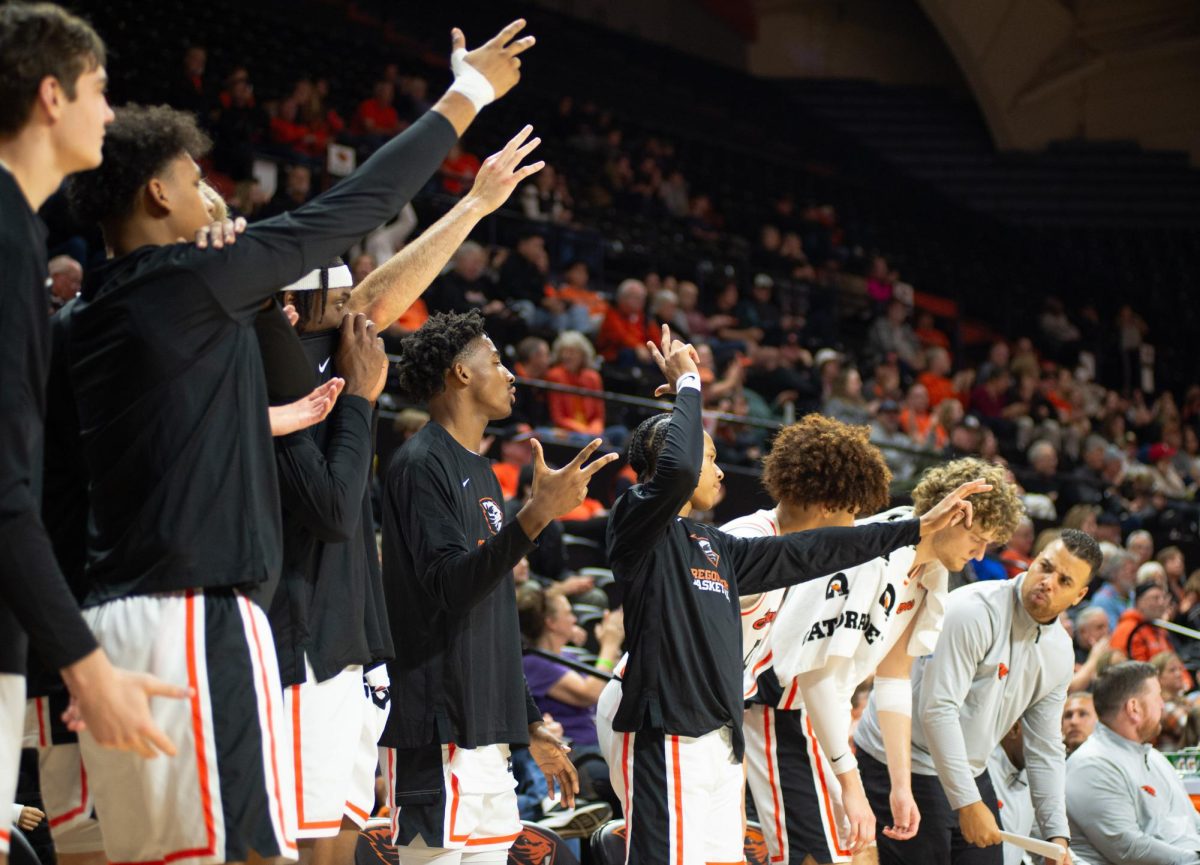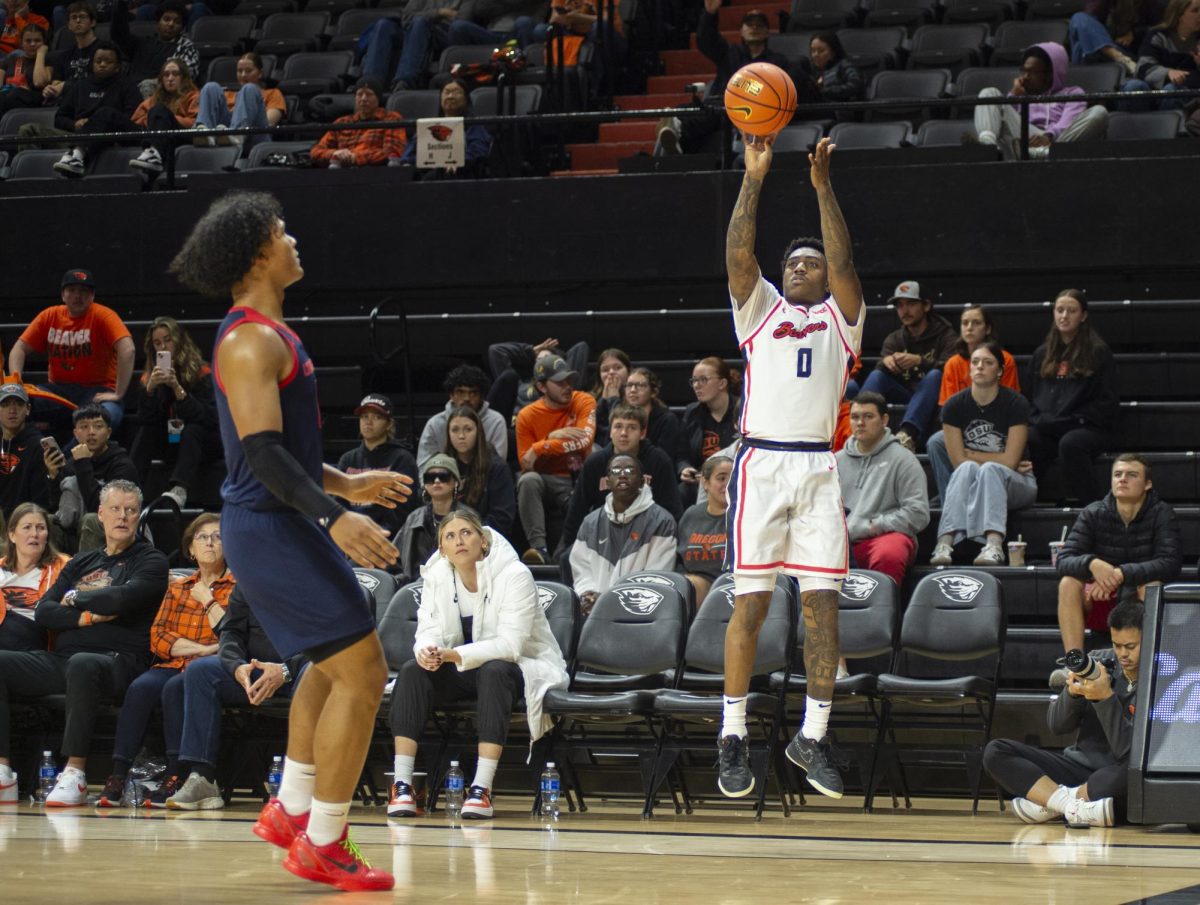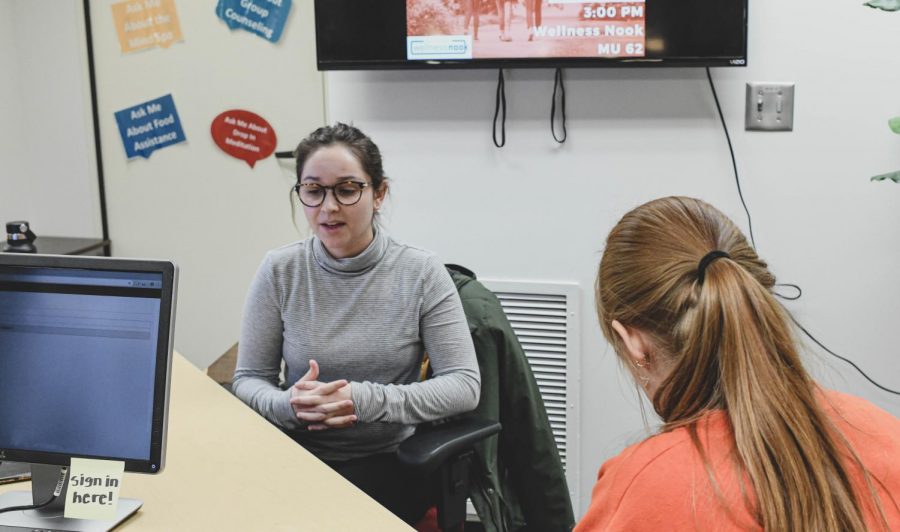CAPS adds guided meditation, Wellness Nook to its many services
January 27, 2020
Counseling and Psychological Services at Oregon State University offers a variety of services that aim to help students and faculty improve their mental health, including the new Wellness Nook and the Beavers Here Now program.
Beavers Here Now is a program that holds short 15-minute guided meditation practices throughout the week in the Memorial Union every Tuesday and Wednesday at 3 p.m. in the Wellness Nook, near Bites on the Mezzanine level. This program, along with the Wellness Nook, has only been open and operating since last term.
Samantha Giaimo, a third-year psychology major, works at CAPS and also leads guided meditation sessions.
“This space is actually occupied by [Student Health Services], CAPS and [Recreational] Sports, we are a team resource center,” Giaimo said. She has been working at the Wellness Nook since last term when it opened.
Hunter Keller, a sixth-year art major, dropped into a leaded meditation session
in the MU.
“I just dropped in to see what this space is about and they said they were starting meditation in a minute and asked if I wanted to join,” Keller said. “So I said yes, and it was good.”
Giaimo said the Wellness Nook will have a variety of resources besides meditation, such as therapy dogs every Wednesday from 10:30 a.m. to 11:30 a.m., and safe sex information.
Located on the fifth floor of Snell Hall, CAPS is open Monday through Friday, 8 a.m. to 5 p.m.
Students at OSU are automatically given 10 free individual counseling sessions a year. Group counseling is also available for anyone who would like to join. A service not many students are aware of though is the Mind Spa.
The Mind Spa is open to anyone and does not require visitors to be pre-existing clients of CAPS. There is no charge to make an appointment. Upon arrival, visitors can relax in the single-space room and choose from a wide variety of resources. Some of these resources include a massage chair, guided relaxation software and even provide vitamin c during the winter months.
The Mind Spa also offers biofeedback techniques. The tools provided aim to improve health by having participants recognize their habits of anxiety, heart rate and tension. Available to check-out as well are portable biofeedback tools that can be used for up to two weeks. Appointments for the Mind Spa can be made anytime during the week between 8 a.m. to 4:30 p.m., and half an hour or full hour sessions are available.
Also available is a self-care packet curated by DAM Good Self-Care that can be picked up in the Academic Success Center. The packet has strategies, tools and exercises that can help regulate stress in everyday life as a student.
Keller said her experiences in the CAPS office itself have been good and bad. She feels the Mind Spa seems like a great space, but it is often booked and leaves emergency walk-in individuals with nowhere to go.
Keller said she has been trying to incorporate meditation into her life more by practicing other mindful exercises such as yoga, and finds routine that help fit her needs.
Another service CAPS provides is their many public playlists. CAPS has a page on Spotify that has 14 different playlists, ranging from ‘Touch of Spring,’ ‘Mindspa-Tranquil’ and ‘Mindspa-Instrumental Native American Flute.’
Julia Drizin, a third-year graduate student studying public health, said she also values wellness practices as being a part of her daily life.
“I’ve informally done meditation on and off my whole life, but I’ve never made it a regular thing,” Drizin said.
Drizin has also sought out other services from CAPS, and although everyone was very kind, she said they are understaffed. “I’ve sought services from them twice, both for one-on-one counseling and support group services, and both times they never followed up with me, which left me feeling disappointed and alone. I love the services they provide, but they need more follow through when students seek help.”
OSU also has a permanent labyrinth located just south of the CH2MHill Alumni Center. A labyrinth is often confused as a maze, but it only has one beginning and one end, one path to take. According to Herbert Benson, M.D., founder of the Benson-Henry Institute for Mind Body Medicine at Massachusetts General Hospital, walking through a labyrinth can induce relaxation. The turns and twists can slow a participant down easing their stress.







